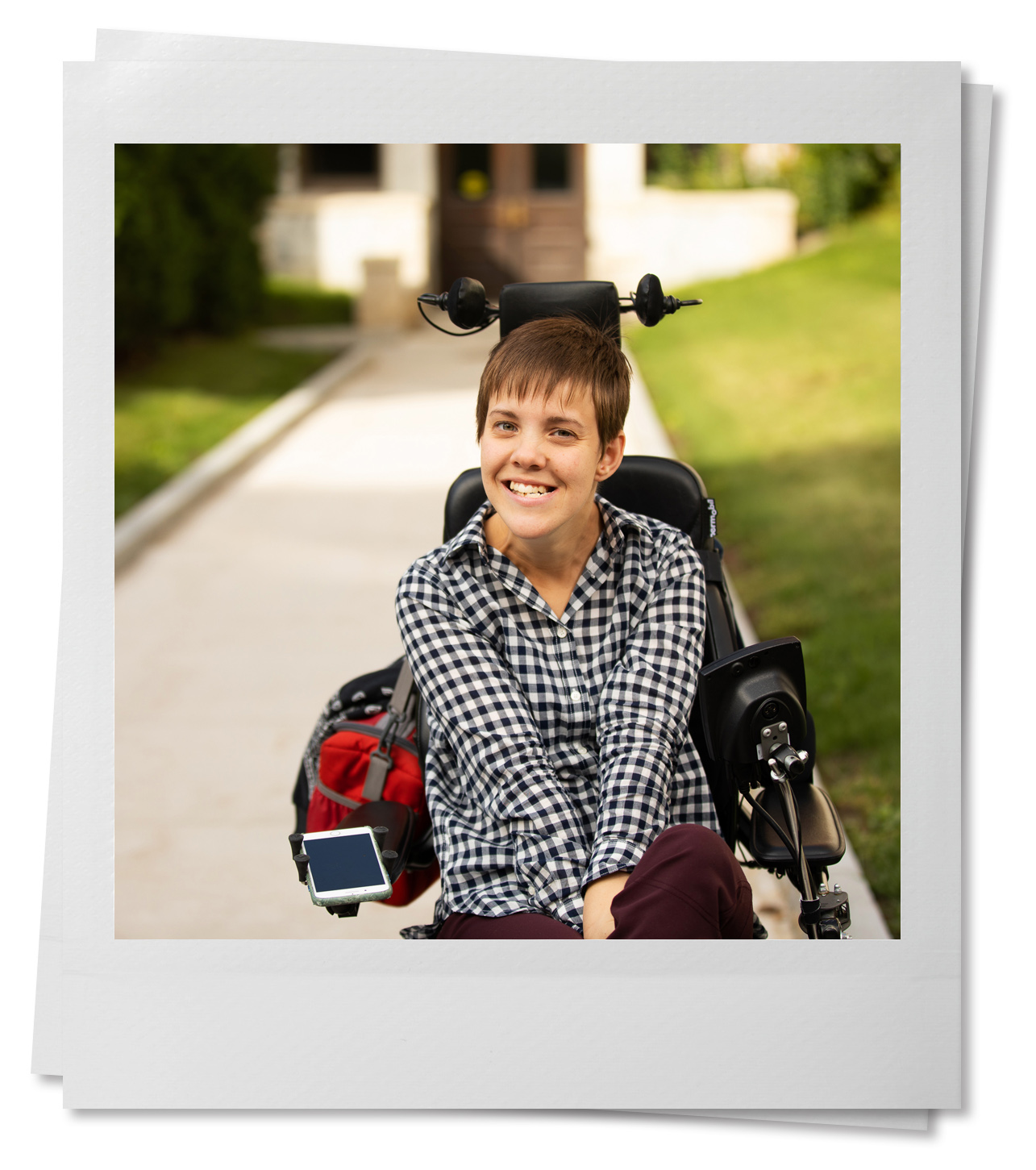Jennifer Brooks
Jennifer Brooks left her power chair at home when she visited her dying father
Instead of risking damage to her custom-built power chair, Jennifer Brooks flew to Georgia to visit her dying father in 2013 with only a manual wheelchair — forfeiting her independence and risking health complications while her mother pushed her wherever she wanted to go.
Yet even the manual chair was damaged.
“No one should have to worry about if they will have a working wheelchair while visiting their sick father,” said Brooks, a Syracuse University doctoral student whose studies focus on labor market disadvantages for people with disabilities.
These days, Brooks, who has cerebral palsy, wishes she could fly home to visit her newborn niece.
“I never thought I could love a tiny human so much until I met her,” she said. “Being away from home got 10 times harder when she came along.”
Jennifer Brooks, a doctoral student at Syracuse University, said that when her father was dying she left her power chair at home and took an inadequate transport chair when she flew to Georgia to see him. She said she couldn’t afford the risk that her power chair would be damaged or that an airline would refuse to pay for repairs. Cherilyn Beckles | Freelance Photographer
Airlines are exempt from the Americans with Disabilities Act, the cornerstone federal law that requires public businesses and services to accommodate people with special needs. Buses and trains have been redesigned to allow passengers to sit in their wheelchairs while they travel, usually with their devices strapped to the floor for safety.
That exemption means airplanes aren’t constructed in a way that would allow for what Brooks sees as the easiest solution to avoid damage and injury: “Let me bring my chair on the plane. … They don’t demand anyone else to put their legs in cargo, but they do when your legs are wheels.”
Instead of the ADA, aircraft accessibility is governed by the Air Carrier Access Act, which only requires that airlines help move a passenger from their wheelchair to their plane seat. The United States Access Board is testing the safety of people flying with their chairs strapped to the floor, a study that is expected to be sent to Congress in October 2021.
But Brooks is skeptical that airlines will begin to accommodate chair users inside the cabin voluntarily.
“People generally don’t make an effort, especially big institutions, to take disability into account unless they are forced to,” she said.
“It’s just too much time, effort, and money,” Brooks said. “We are invisible to so many people that it takes the law to make us visible.”
Up next:
Carolyn Agee was abandoned and immobile for 4-hour layover

